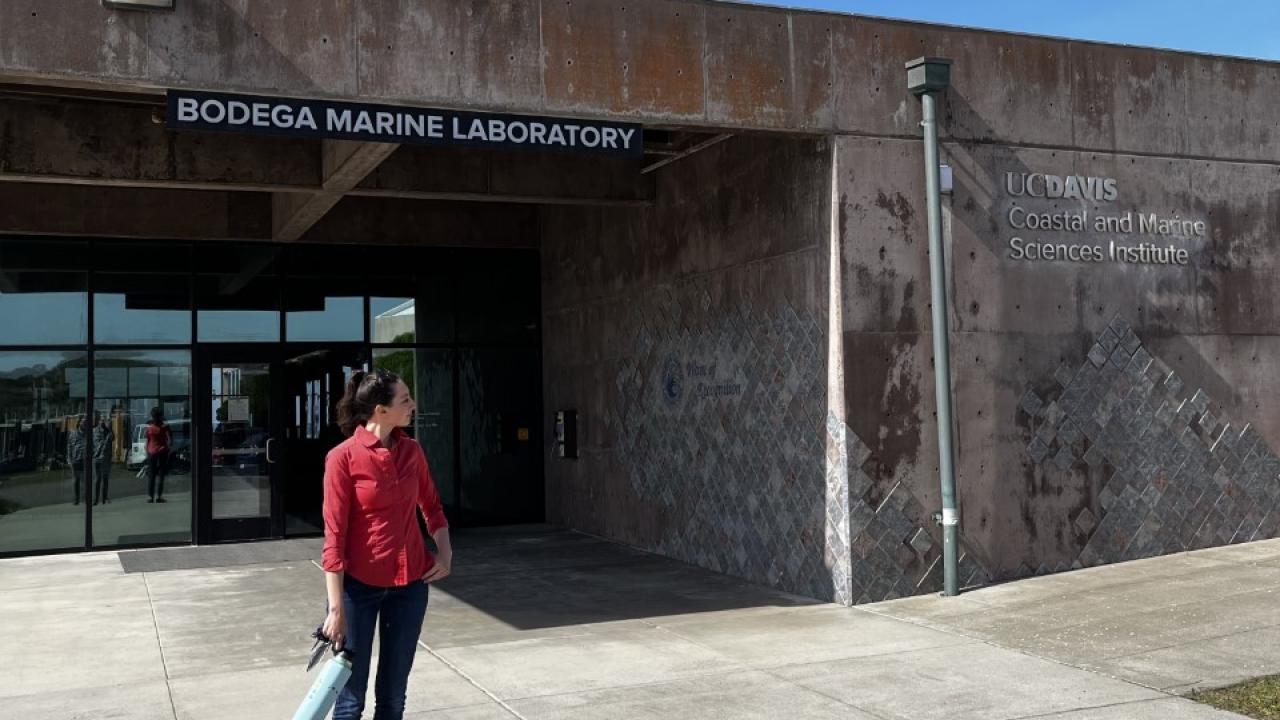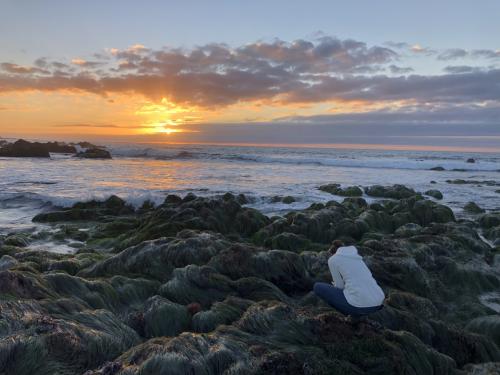
Student Spotlight- Natalie Chapman
Practicum Experience
California’s coastal and marine resource management continues to change and adapt in response to renewable energy development, increased maritime economics, and novel oceanic discoveries. My work communicates social and marine science recommendations for holistic policy decisions.
I work with Blue Latitudes Foundation, a non-profit 501(c)(3) organization, providing policy analysis, bill tracking, and advisement. I help increase BLF’s autonomy as they engage with the legislative process. BLF focuses on innovative conservation opportunities and engages with marine industries to ensure the safest and most ecologically considerate interfaces exist off California’s coast. Working under this initiative, we look at the offshore oil decommissioning process as a unique opportunity to further marine conservation and habitat renewal, support multiple economies such as fisheries, diving, and research initiatives, and engage oil and gas operators in bridging the gap between marine conservation and industrial landscapes.
In addition to BLF, I contribute to a beach sustainability assessment study analyzing equitable beach access, and how climate-induced sea-level-rise threatens equitability in Ventura and Santa Barbara counties. BSA-CAMP represents interdisciplinary research as the three-year study encompasses geomorphology, policy, and economic research. I create biographies of sandy beach managing entities. Essentially, I strive to provide context to the “who, what, where and when”; who manages sandy beaches; what are they specifically managing (sand, water, recreation, etc); where is the jurisdiction, location, authority; when do they manage. These questions, while simple, provide important information when considering who to engage with when equitability becomes an issue.
These projects exemplify my passion for working in coastal and marine management environments. In addition to these, I volunteer for multiple terrestrial management projects to help improve land-based practices that influence coastal quality. For example, I work with the Central Coast Prescribed Burn Association to re-introduce good fire to landscapes and reduce the risk of pollutant-spewing wildfires. I also reduce invasive species coverage to make space for native coastal habitat.
Looking ahead, I strive to increase data communication quality and policy receptivity.

Professional Appearances
A few weeks back, I spoke at UC Davis’s Coastal and Marine Science Institute’s annual Symposium held at Bodega Bay. I enjoyed the scientific background the Symposium provided, as most speakers are currently pursuing doctorates in marine science research. The opportunity showcased potentials for crossovers between science communication and policy adaptation. I spoke with Katie Michel (a current EPM student) and a few other attendees about the potential to connect graduate level students in a scientific field with policy students in a pen-pal relationship to further the interdisciplinary field and break down the silos of information. I’d love to see this idea take off in future programs!
I attended California Ocean Day Conference in March, which connected ocean conservation experts with legislative officials and their teams, as well as provided informative talks about ongoing projects gaining momentum across the State’s coast. Talks ranged from storytelling to novel scientific discoveries, and attendees represented diverse backgrounds. I connected and expanded my professional network with the Monterey Bay Aquarium lead communication specialist, as well as CSU COAST’s director. These engagements developed communication skills and truly highlighted the importance of applying my diverse skillset encompassing marine and social science backgrounds and policy development knowledge.
